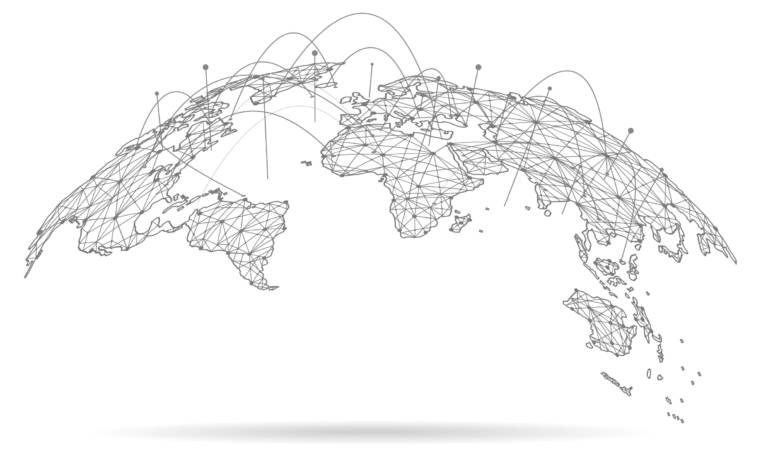Letters Rogatory Explained: Facilitating Legal Cooperation In Between Countries

Meaning of Letters Rogatory
Letters rogatory are formal demands made by a court in one territory to a court in an additional jurisdiction, seeking support in getting evidence or testament for a legal case. This step-by-step device is important in the context of global law, where legal systems might vary, and cross-border participation is necessary. Letters rogatory help with the gathering of info that might be crucial for settling cases, especially in circumstances including intricate multinational concerns.
Normally, these requests arise in civil, criminal, or management matters where a party needs evidence that lies outside the jurisdiction of the requesting court. The letters function as a way to make certain that the principles of due procedure are maintained, enabling courts to gain access to proof that may or else remain unattainable because of geographic or lawful obstacles.
Using letters rogatory is regulated by global treaties, reciprocal agreements, or domestic legislations, which delineate the procedures and responsibilities of the courts included. It is very important to note that the execution of such demands is not ensured; they depend upon the laws and methods of the jurisdiction getting the letter. Thus, letters rogatory are a crucial tool for fostering lawful participation and ensuring justice across borders.
The Process of Issuing Letters Rogatory
Issuing letters rogatory includes a structured procedure that makes sure conformity with both residential and worldwide legal criteria. At first, the asking for party, usually a court or legal authority, prepares a formal request outlining the nature of the aid sought, the proof or information needed, and the legal basis for the request. This paper needs to be specific to help with understanding by the foreign jurisdiction.

The following action entails sending the letters rogatory to the marked international authority. This is frequently done with polite channels or worldwide lawful aid frameworks, making sure that the demand is received and recognized by the foreign court. The foreign court after that refines the demand according to its very own legal procedures, eventually replying to the asking for celebration with the desired info or evidence, therefore facilitating global lawful teamwork.
Significance in International Legislation
The importance of letters rogatory in international legislation can view not be overstated, as they act as a critical system for judicial teamwork across borders. These formal ask for support in legal matters enable courts in one territory to look for details, evidence, or the presence of witnesses from one more jurisdiction, therefore assisting in the administration of justice in transnational cases.
Letters rogatory are specifically important in the context of globalization, where legal disagreements frequently cover numerous nations. They allow the collection of proof that could otherwise be inaccessible, guaranteeing that legal procedures are notified and fair. By promoting partnership in between judicial systems, letters rogatory aid support the regulation of legislation and promote shared regard among countries.
Additionally, using letters rogatory shows a commitment to worldwide norms and concepts of teamwork, mirroring the interconnected nature of modern-day lawful methods. It illustrates the value of adhering to well established procedures and treaties, such as the Hague Convention, which supplies a structure for these requests - Letters rogatory. Inevitably, letters rogatory improve the efficacy of lawful processes, ensuring that justice is not impeded by geographical limits
Difficulties and Limitations
Regardless of their importance, letters rogatory face numerous challenges and limitations that can impede their efficiency. One primary concern is the varying legal structures and procedures throughout territories, which can cause misconceptions and delays in the execution of demands. Various nations may have distinctive demands for the credibility of letters rogatory, complicating the procedure additionally.
Furthermore, the often lengthy nature of global lawful teamwork can prevent prompt accessibility to evidence or witnesses. This hold-up may detrimentally affect lawful proceedings or recurring examinations, especially in cases requiring urgent activity. The absence of resources and training in some jurisdictions can result in not enough handling of demands, leading to poor or incomplete feedbacks.
Countries with less official legal systems might battle to comply with the step-by-step rigor expected in letters rogatory. These challenges demand continuous discussion and reform to boost the efficacy of letters rogatory in legal cooperation.
Instance Studies and Examples

On the other hand, obstacles can occur, as seen in a situation including a European nation seeking proof in a continuous criminal matter from a non-EU nation - Letters rogatory. The procedure was delayed because of governmental difficulties and differing lawful criteria, eventually preventing the investigation
These anonymous instances highlight that while letters rogatory can facilitate international cooperation and expedite lawful process, they additionally highlight the need for clear communication and understanding of lawful frameworks between countries. Such study highlight the significance of refining this tool to improve efficiency and effectiveness in global legal matters.
Verdict
In summary, letters rogatory offer as a crucial system for assisting in legal participation between nations, making certain the collection of proof and testimony across territories. Their importance in international law can not be overemphasized, as they advertise due process and improve the performance of cross-border legal procedures.
Letters rogatory are formal requests made by a court in one jurisdiction to a court in an additional territory, seeking support in acquiring evidence or testimony for a lawful proceeding. The asking for event, commonly a court or legal authority, drafts a formal request detailing the nature of the support sought, the evidence or information required, and the lawful basis for the request. The international court after that processes the request according to its very own lawful procedures, eventually reacting to the asking for party with the sought-after information or evidence, thus helping with worldwide lawful cooperation.
Additionally, the usage of letters rogatory shows a commitment to worldwide my latest blog post standards and concepts of collaboration, reflecting the interconnected nature of modern-day legal practices.Global legal collaboration with letters rogatory is not without its real-world effects, as shown by various situation studies that highlight both obstacles and successes.
Comments on “Letters Rogatory vs. Mutual Legal Assistance Treaties: Secret Differences Discussed”